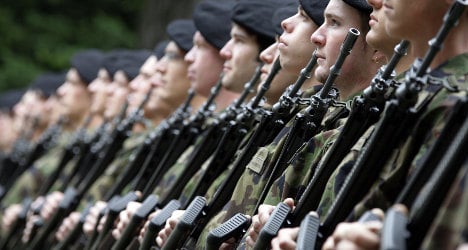Switzerland's army simulated a French attack against their country in training exercises in August, the newspaper Matin Dimanche revealed on Sunday.
The army imagined a scenario in which France was in financial turmoil and had split up into several regional entities.
One of these, “Saônia,” was preparing attacks on Switzerland to retrieve money it had apparently stolen from it.
Operation “Duplex-Barbara” was practiced at the end of August, according to the Swiss daily, and essentially involves the (existing) Jura region of eastern France breaking away from the rest of the country.
“Saônia” then launches the invasion across the Swiss border, with a pro-Saônian government paramilitary group, the BLD (Brigade Libre de Dijon) going “in search of the money Switzerland stole from Saônia,” according to Matin Dimanche.
IN PICTURES: France in the future – what could change
“The exercise has strictly nothing to do with France,” said Daniel Berger, captain of the Swiss armoured brigade.
“It was prepared in 2012 when fiscal relations between both countries were less tense,” he added.
SEE ALSO: French rush over the border to Switzerland – to escape tax hunt
Switzerland is famed for its bank secrecy laws, which critics say have enabled many clients to shield their wealth from the scrutiny of tax inspectors back home.
But these once sacrosanct laws are slowly being eroded as France and other countries such as the United States step up their fight against tax evasion in a troubled economic climate.
SEE ALSO: Swiss recruiters boycott “lazy and arrogant” French workers
In 2012 the Swiss army had imagined a different scenario: one in which they were faced with an influx of refugees after the euro currency had crashed and provoked social chaos in Europe.
Don't miss stories like this – join us on Facebook and Twitter
Keep up to date with Swiss news – check out The Local Switzerland




 Please whitelist us to continue reading.
Please whitelist us to continue reading.
Member comments